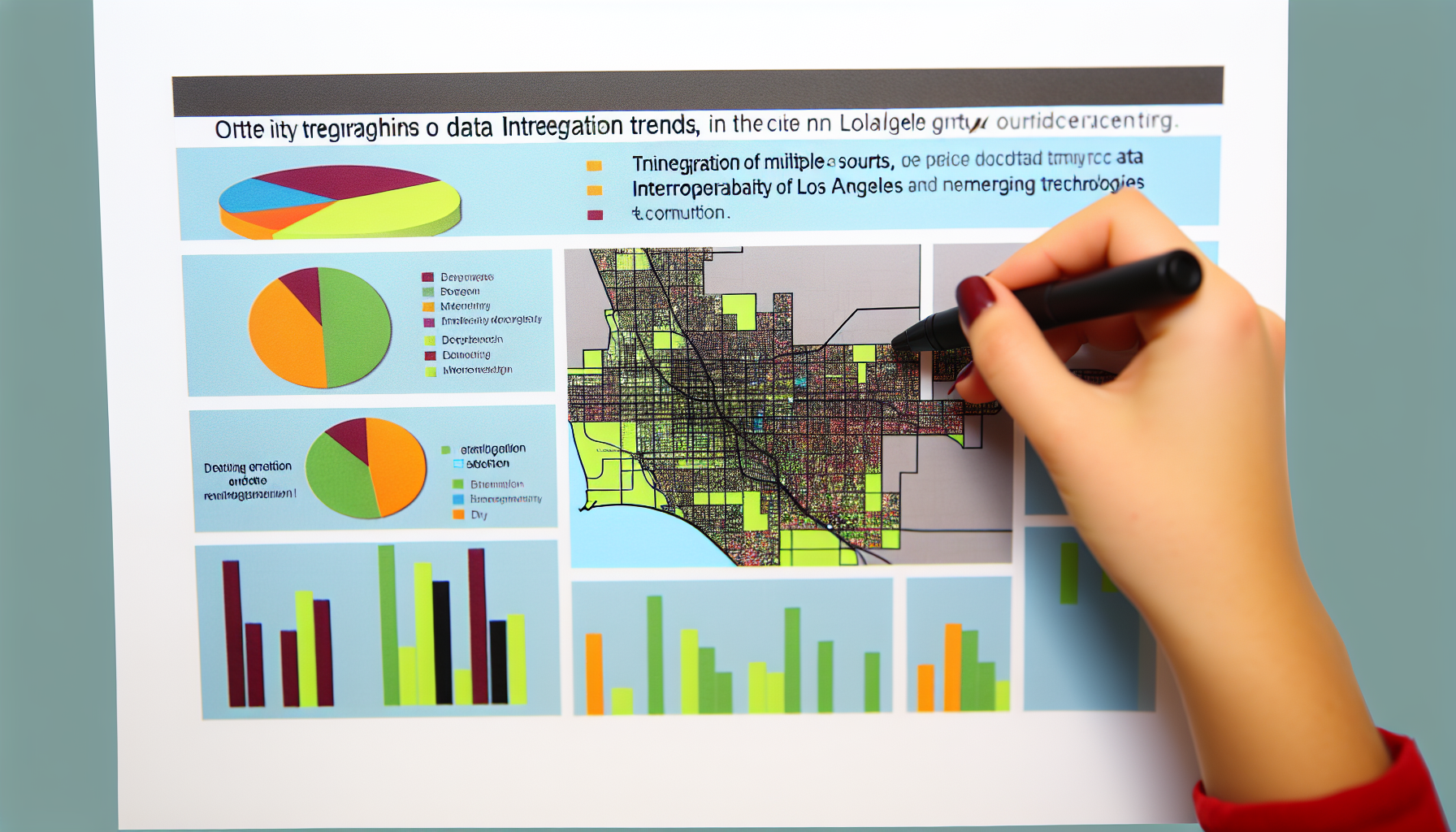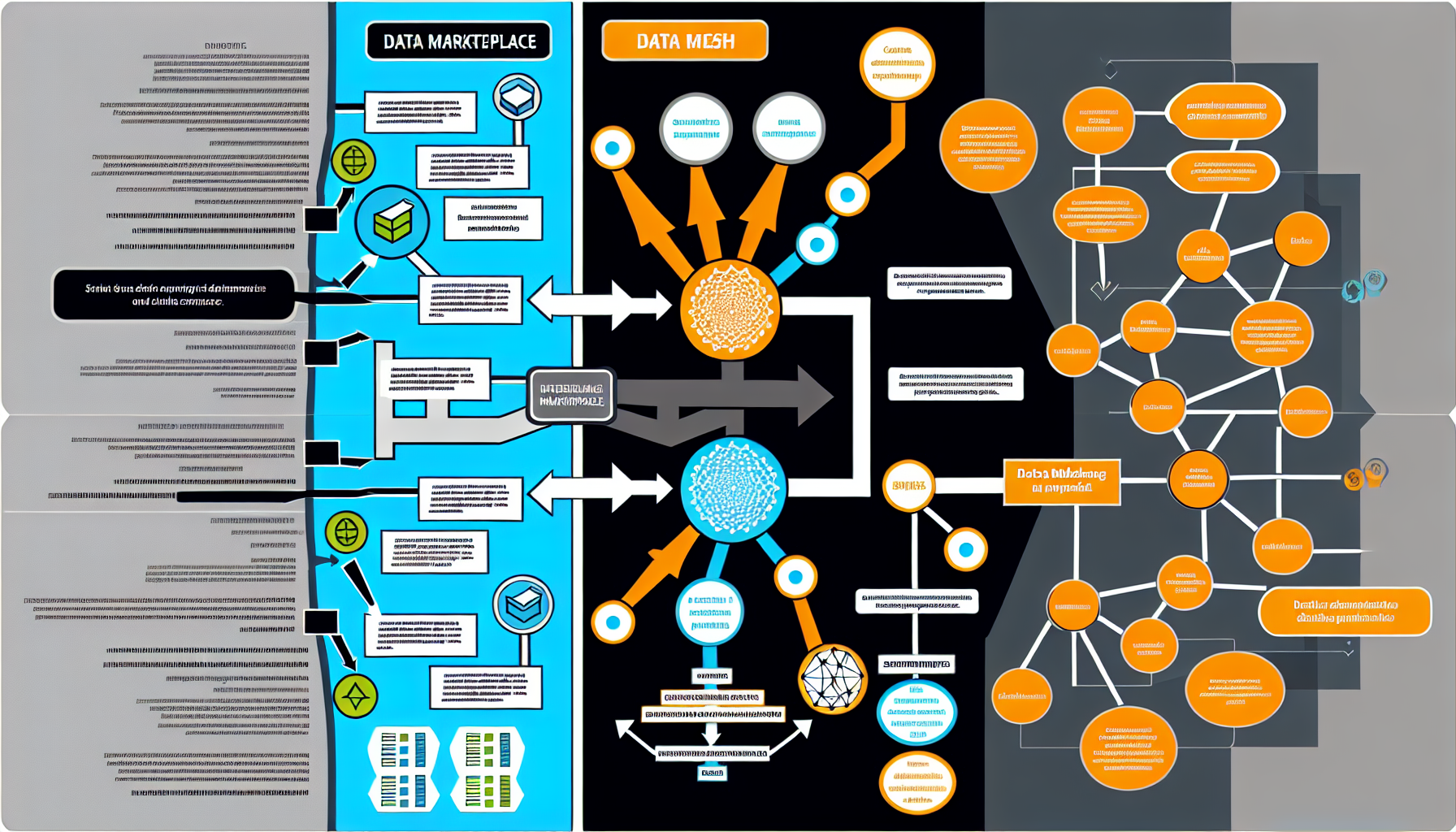Data Integration Trends Los Angeles: The Evolving Landscape and What to Expect in 2024

The city of Los Angeles stands at the forefront of data integration innovation, with trends in 2024 indicating a continued evolution. Firms across the digital spectrum, including giants like Netflix and Amazon Prime, harness the power of data integration for their recommendation engines. As highlighted by industry experts, “the data integration framework powers everything that is linked to data.”
With the rapid advancement of technology, we are witnessing a surge in the variety of data integration tools available. These tools are not only increasing in complexity but also in their ability to provide actionable insights. This evolution is driving Los Angeles firms to adopt more sophisticated data integration frameworks, ensuring that they remain competitive in a data-driven world.
As we look toward 2024, the integration landscape in Los Angeles is set to become more intuitive and user-centric. The integration of artificial intelligence (AI) into these systems is a game-changer, offering the ability to monitor data continuously and adapt integration processes to user interactions, as suggested by recent studies.
Data Marketplace vs Data Mesh: Understanding the Core Philosophies and Applications
The debate between data marketplace and data mesh philosophies is one of the most intriguing discussions in the field of data integration. A data marketplace operates as a centralized hub where data can be accessed and shared, while a data mesh adopts a decentralized approach, empowering domain-specific ownership of data.
According to data integration specialists, “The Data Mesh has the potential to substantially increase the quality of data integration across an enterprise.” It emphasizes the importance of human understanding in the integration process, ensuring that those with the best grasp of the data’s context are involved.
In contrast, the data marketplace model simplifies data access for users across an organization, creating a more streamlined experience. The choice between these two models depends largely on the specific needs and structure of an organization, making it crucial for Los Angeles businesses to carefully consider their data management strategy.
Addressing Los Angeles Data Chaos Solutions: How Data Integration Models Can Tame Complexity
The complexity of data landscapes in Los Angeles businesses can often lead to what is termed ‘data chaos.’ This phenomenon results from the sheer volume and variety of data that companies must manage, often leading to inefficiencies and errors.
Effective data integration models are essential in taming this complexity. As noted by industry leaders, “Effective data integration allows organizations to easily access, manage, and analyze their data,” which is key to driving better decision-making and gaining a competitive edge.
Moreover, the integration of data is not only about efficiency but also about the quality of insights that can be derived. The preliminary integration of data enhances the verification level and quality of conclusions, enabling businesses to better anticipate their audience’s expectations and craft targeted advertising messages, as explained by data integration experts.
Data Management Strategies 2024: Choosing Between Marketplace and Mesh for Your Organization

As we approach 2024, Los Angeles businesses are faced with the critical decision of choosing the right data management strategy. The decision between adopting a data marketplace or a data mesh model will have significant implications for the way data is handled within an organization.
The data marketplace model may be more suitable for organizations looking for a centralized and standardized approach to data management. This model provides a user-friendly platform for data sharing and collaboration, making it an attractive option for businesses with a diverse user base.
On the other hand, a data mesh approach may be more appropriate for organizations that prioritize domain-specific control and decentralized data ownership. This strategy allows for greater flexibility and responsiveness to individual department needs, fostering a culture of data-driven decision-making at all levels.
Data Integration Case Studies LA: Real-World Successes and Lessons Learned
Los Angeles is home to a myriad of successful data integration projects, each offering valuable insights and lessons for businesses looking to enhance their data management practices.
One such case study involved a local e-commerce company that implemented a data mesh model to manage its vast product inventory data. The result was a significant improvement in data quality and a more agile response to market changes. The experience of this company underscores the importance of selecting a data integration model that aligns with the specific needs and dynamics of a business.
Another case study from the entertainment sector illustrates how a data marketplace facilitated collaboration between different production teams, streamlining the sharing of critical performance data and ultimately leading to more informed decision-making processes.
